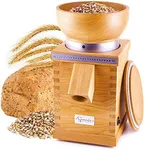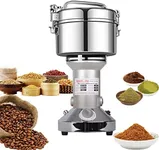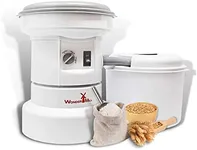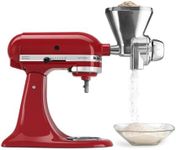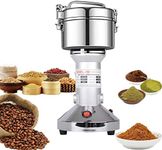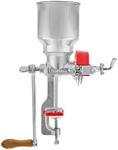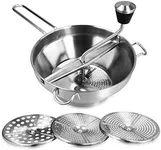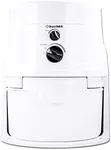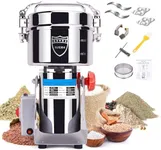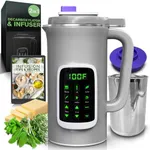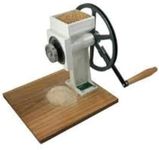Buying Guide for the Best Flour Machine For Home
Choosing the right flour machine for home use can significantly enhance your baking and cooking experience. A flour machine, also known as a grain mill, allows you to grind your own flour from various grains, ensuring freshness and control over the ingredients. When selecting a flour machine, it's important to consider several key specifications to ensure it meets your needs and preferences. Here are the main factors to consider and how to navigate them.Grinding CapacityGrinding capacity refers to the amount of flour the machine can produce in a given time, usually measured in pounds or kilograms per hour. This is important because it determines how quickly you can produce flour. For occasional home use, a machine with a lower capacity (around 1-2 pounds per hour) may be sufficient. For larger families or frequent bakers, a higher capacity (3-5 pounds per hour or more) might be more appropriate. Consider your typical usage to choose the right capacity.
Type of GrainsDifferent flour machines are designed to handle different types of grains, such as wheat, corn, rice, and even nuts or seeds. It's important to choose a machine that can process the specific grains you plan to use. Some machines are versatile and can handle a wide range of grains, while others are specialized. Think about the variety of flours you want to produce and ensure the machine you choose can accommodate them.
Power SourceFlour machines can be powered manually or electrically. Manual machines require physical effort to grind the grains, which can be a good option if you prefer a more hands-on approach or want to use the machine in areas without electricity. Electric machines are more convenient and efficient, making them ideal for regular use. Consider your preference for convenience versus manual effort when choosing the power source.
Size and WeightThe size and weight of the flour machine are important for storage and portability. If you have limited counter or storage space, a compact and lightweight machine would be more suitable. However, larger machines often have higher capacities and more features. Think about where you will store the machine and how often you will need to move it to find the right balance between size and functionality.
Ease of CleaningCleaning a flour machine can be a tedious task, so it's important to choose one that is easy to disassemble and clean. Machines with removable parts and simple designs are generally easier to clean. Consider how often you will use the machine and how much time you are willing to spend on maintenance to choose a model that fits your lifestyle.
Noise LevelGrinding grains can be noisy, and some flour machines are louder than others. If you are sensitive to noise or plan to use the machine in a shared living space, consider a model with a lower noise level. Manufacturers often provide information about the noise level, so look for this specification if it's important to you.
Durability and Build QualityA well-built flour machine made from high-quality materials will last longer and perform better. Look for machines with sturdy construction, preferably made from metal or high-grade plastic. Reading reviews and checking the warranty can also give you an idea of the machine's durability. Choose a machine that is built to last, especially if you plan to use it frequently.
